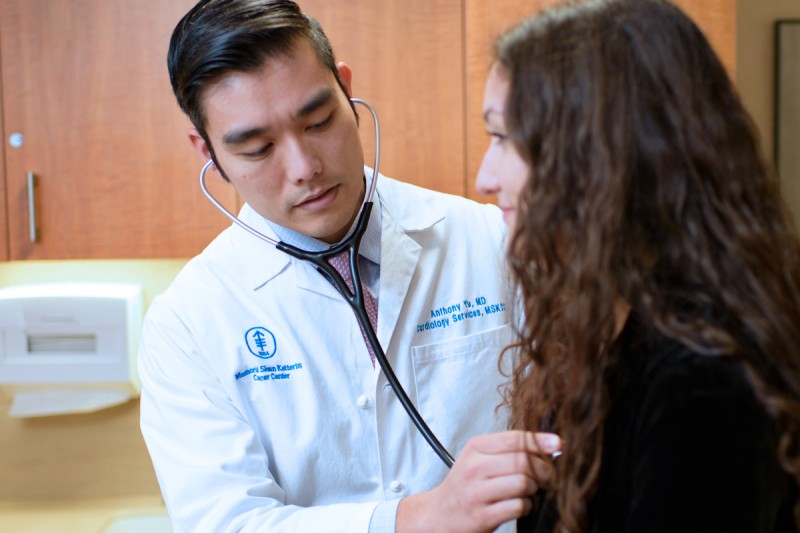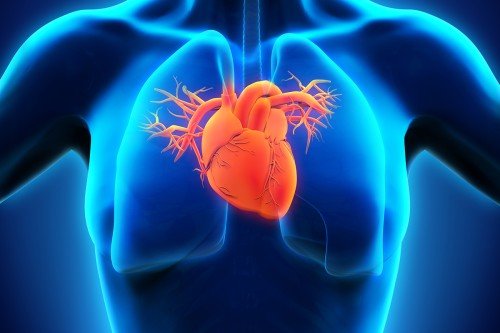
Cancer is challenging enough on its own. Now, a recent study published in European Heart Journal showed that people with cancer were two to six times more likely than the general population to die from heart attack or stroke. In those diagnosed with cancer before age 55, the risk increased more than tenfold.
Richard Steingart, Chief of Memorial Sloan Kettering’s Cardiology Service, oversees a team of heart specialists who help manage the care of MSK patients at risk of heart disease. He explains what causes the cardiac risk and describes how MSK works to keep people with cancer heart-healthy.
How do cancer treatments raise the risk of heart disease?
Chemotherapies, especially a class of drugs called anthracyclines, can damage heart tissue. This can cause the heart muscle to become weak and unable to pump blood to the rest of the body as well as it should. Newer, targeted therapies, such as trastuzumab (Herceptin®), are remarkably effective against cancer, especially breast cancer, and tend to have fewer overall side effects — but they can also damage the heart, particularly when given after anthracyclines. Some other targeted therapies are aimed at blocking the growth of blood vessels that nourish tumors, but they can harm normal blood vessels too and cause high blood pressure.
Radiation therapy can cause blood vessels to narrow and heart valves to scar, which limits blood flow. In the 1970s and 1980s, a standard treatment for lymphoma was mantle radiation given to the entire chest. This caused coronary artery disease, heart valve disease, and abnormal heart rhythm. We’ve learned to limit the radiation to the areas in the chest with the tumor, but radiation can still increase heart disease risk to some extent if the heart and blood vessels are in the radiation field.
Why does it now appear that there is a higher risk of heart disease in people with cancer?
The main reason is that people with cancer are living longer, which gives time for the heart disease to become an issue. In the past, someone with late-stage cancer would have died within six months, so it wouldn’t matter much what was going on in the heart. But today, many more patients are living for years with these cancers, so we must address how the cancer or treatments may be affecting the heart and vessels. In addition, new treatments are always becoming available, and they can affect heart disease risk in unexpected ways that we need to be aware of in order to minimize the effects.
How does MSK manage or reduce heart disease risk in patients?
Doctors and advanced practice providers on the Cardiology Service see between 5% and 10% of MSK patients, which includes inpatients and outpatients who either have heart disease or are at high risk of the condition. The service has 12 full-time cardiologists, along with a large group of nurses, nurse practitioners, physician assistants, and cardiovascular technologists.
For inpatients, we collaborate with the treating physicians and continually monitor the patients to minimize cardiovascular damage. We also have a unique program for the highest-risk patients called a monitored cardiac care unit.
For outpatients and people recovering after treatment, we monitor them during office visits as well as remotely, keeping track of symptoms and vital signs. Our nursing service makes phone calls once or more per week to people who have certain cardiovascular conditions, such as heart failure, high blood pressure, arrhythmias, or atrial fibrillation. For people at high risk of arrhythmia, we can give them wearable devices with an electrocardiogram that records the electrical activity of the heartbeat. It will send an alert to our medical staff if there is an arrhythmia that needs to be looked into.
The risk for patients is highest during active treatment and the first six months to a year afterward. But we’re becoming more aware that for some patients, the increased risk of heart disease never goes away. Patients should be aware of the potential for the delayed effects of treatment and stay in close communication with their doctors.
What else should people with cancer know about maintaining a healthy heart?
It’s important to emphasize that cancer survivors have been through a traumatic experience. Many want to put it behind them. It can be hard for them to come back for checkups, which can bring back negative memories of their treatment. But patients and doctors should accept the fact that an ongoing relationship is important for the maintenance of a patient’s overall health.
Many people with cancer find it hard to stay physically active, even well after treatment has ended. I always encourage my patients to view exercise as a fun, enjoyable part of their lives.
For all cancer survivors, we recommend controlling blood pressure, weight, and cholesterol, and that they stay physically active as much as possible — ideally 30 minutes of moderate activity five days a week. MSK’s Integrative Medicine Service offers specialized fitness classes for building strong bones and increasing flexibility. Some people may require more intensive long-term monitoring with echocardiograms and exercise testing depending on their cancer, their treatments, and specific heart disease risk.
These measures can help maintain quality of life, prevent functional decline, and speed recovery once treatment is completed. The benefits go well beyond heart health.


